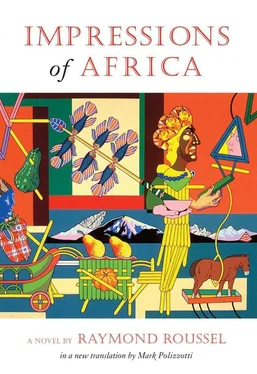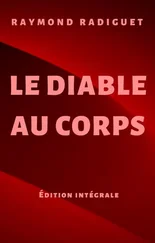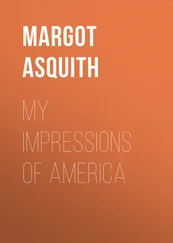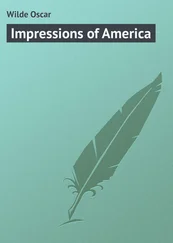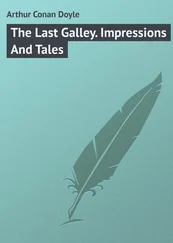Raymond Roussel
Impressions of Africa
INTRODUCTION: A CHILD’S GARDEN OF ECCENTRICITIES
KNOWN — TO SOME — AS the Houdini of French literature, Raymond Roussel might also be its Peter Pan. The consummate verbal prestidigitator (André Breton dubbed him “the greatest mesmerizer of modern times”) carried in his bag of tricks enough material for at least ten times his actual output, and devised the sort of technological novelties that invite comparison both with his idol Jules Verne and with another of the twentieth century’s underrated oddballs, Nikola Tesla. In terms of compositional mechanics, his celebrated procédé (method), though its full implications remain largely unexplored, has resurfaced in the writings of the Surrealists, the New Novelists, the Oulipo, and the New York School. But in many ways, Roussel was also the boy who never grew up. In page after page, the reader of his novels finds himself seated before a seemingly endless spectacle, staged, it would appear, for Roussel’s benefit alone. And as with many children of privilege — which Roussel was in spades — any discomfort or damage suffered by the performer takes a distant backseat to the demanding tot’s enjoyment.
On the surface, in fact, Impressions of Africa , with its titular whiff of exoticism and H. Rider Haggard derring-do, would seem to appeal largely to an adolescent’s sense of thrill. On the Ides of March, somewhere at the dawn of the twentieth century, European passengers bound for Argentina survive a shipwreck and wash up on the shores of a fictive African nation. There they are taken captive by the vainglorious local potentate and held for several months, until sufficient ransom can arrive from Europe. So far we have the makings of a relatively standard adventure tale set in a far-off latitude where curious things can, and often do, occur. But these are no ordinary passengers, and this is no pastiche of King Solomon’s Mines (though Roussel, a fan of popular fiction, might well have read the book, judging by the similarity of the sovereign names Twala and Talou). In place of the intrepid Allan Quatermain, Roussel introduces a singularly gifted collection of castaways, ranging from circus freaks to inventors to scholars to theatrical prodigies, each, as luck would have it, a nonpareil in his or her specialty.
Indeed, very quickly the ostensible plot of African exile falls away, yielding to the author’s real interest: a series of minutely described performances given by these castaways, as part of a gala they have devised to while away the time until deliverance. Theater — or, more precisely, theatrical effect, the sense of marvel produced by magical and well-disguised artifice — proves the most formidable protagonist of Impressions of Africa , and the novel’s various characters merely its instruments. The human plight of these characters, the suspense surrounding their release from captivity, ultimately takes on far less importance than the question of whether their performance will come off without a hitch — and even that suspense is muted, for the true motor here is not whether the gimmick will work, but rather that it works and how it works. One can easily imagine Roussel, an avid theatergoer in real life, gaping with juvenile glee at the kaleidoscopic succession of wonders he has devised for his own amusement, each one following the last in a seamless and flawless procession, forming a world that is itself (as one critic put it) “a theater in which people go to the theater.”
The matter of performance is no idle conceit. Obsessed with fame, Roussel spent his adult life haunted by the alluring, and ultimately elusive, specter of public adulation. He described for his doctor, the renowned psychiatrist Pierre Janet, the sensation of glorious bliss he had experienced at the age of nineteen while writing his first long poem, La Doublure :
I was the equal of Dante and of Shakespeare, I was feeling what Victor Hugo had felt when he was seventy, what Napoleon had felt in 1811 and what Tannhäuser had felt whilee musing on Venusberg: I experienced la gloire …Whatever I wrote was surrounded by rays of light; I used to close the curtains, for I was afraid that the shining rays emanating from my pen might escape into the outside world through even the smallest chink; I wanted suddenly to throw back the screen and light up the world. To leave these papers lying about would have sent out rays of light as far as China, and the desperate crowd would have flung themselves upon my house.
Needless to say, when La Doublure was finally published — at the author’s expense, as its minute descriptions made it virtually unsalable, even for poetry — it occasioned no such desperate flings, and Roussel sank into a depression from which he never fully recovered. “Its lack of success shattered me,” he wrote years later. “I felt as though I had plummeted to earth from the prodigious summits of glory.”
He nonetheless continued to write, in an unceasing bid for public acclaim. First he composed several more, equally hermetic, epics in verse; then, deciding that fiction was a surer road to bestseller-dom, the two novels that form his literary apex, Impressions of Africa (published — again at his expense, as ultimately were all his works — in 1910) and Locus Solus (1914). Finding the response to these books still rather lukewarm, Roussel set his sights on the theater as a more reliable audience magnet. He hired playwrights to adapt his two novels for the stage, financing the productions with dogged persistence, spendthrift profligacy, and the obliviousness to ridicule of a Florence Foster Jenkins; but his preference for long, abstruse monologues over discernible action put the shows beyond the pale of audience tolerance, and they fizzled after only a few performances. Undaunted, Roussel then turned to composing original stage works, starting with The Star on the Forehead (1925) — its title a transparent metaphor for genius that figures in several of his writings, Impressions of Africa among them — followed by The Dust of Suns in 1927. Like their predecessors, both were costly flops.
Roussel saw one last work into print in his lifetime, the book-length poem New Impressions of Africa (1932) — a work so demanding, with its myriad extended similes, lengthy footnotes, and multiple layers of embedded parenthetical clauses, that not even its author can have expected much success for it. After this, as Roussel’s biographer Mark Ford notes, he “started to experiment with other possible means of recovering the euphoria of la gloire ,” including alcohol and barbiturates. He also traveled in grand style, despite the vast depletion of his fortune largely due to his hefty self-publication bills.
In June 1933 Roussel and Charlotte Dufrène, his confidante, traveling companion, and “beard,” checked into the Grande Albergo e delle Palme in Palermo, where he spent most of the day either cloistered in his rooms or being chauffeured randomly about the city; evenings were devoted to drug-induced transports. He suffered a first overdose two weeks after arriving, recovered, then was found in his bathroom two weeks after that, having clumsily opened his veins with a straight razor. From this too he recuperated, but soon after he tried unsuccessfully to bribe both Dufrène and the hotel valet into killing him. Finally, on the evening of July 13, he swallowed a handful of barbiturates and went to bed, while the sky outside his hotel window exploded in an ecstasy of fireworks and people flooded the streets — the combined results of a local festival and Mussolinian pomp that, as Mark Ford wrote, might well “have reminded him of the flames, the noise, and the turbulent crowds” of his dreams of glory.
Читать дальше
